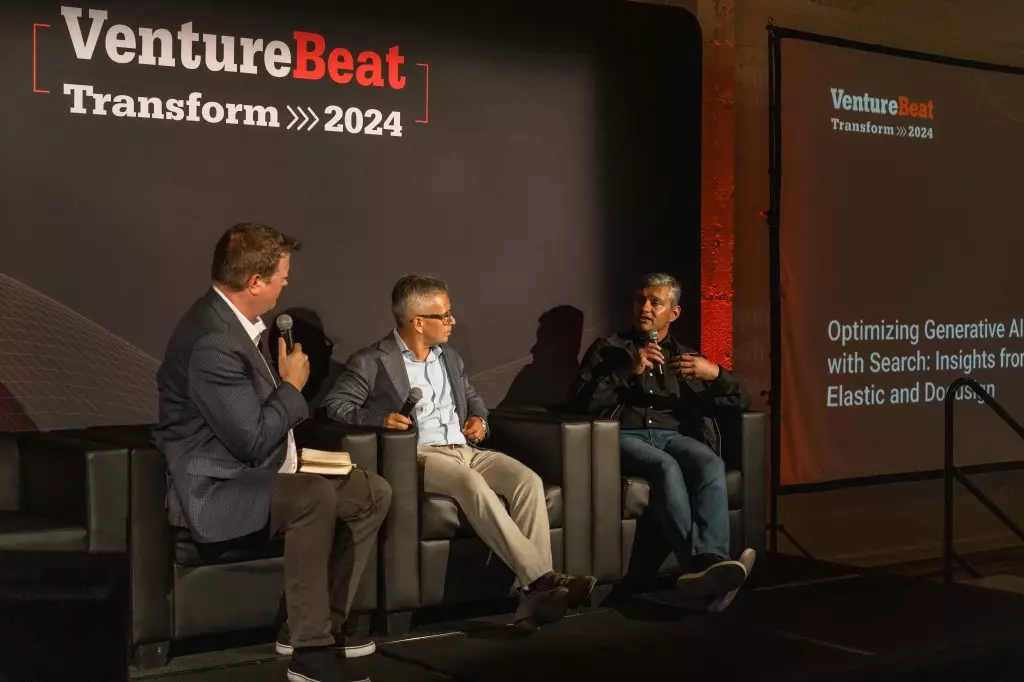In a recent discussion at VentureBeat’s Transform 2024 event, Elastic CEO Ash Kulkarni and DocuSign CPO Dmitri Krakovsky shed light on the transformative power of generative AI in enterprise search and contract management. The conversation underscored the increasing significance of AI-driven search capabilities for businesses grappling with vast data repositories and complex contractual relationships.
Elastic has made significant strides in its approach to enterprise search by integrating generative AI into its technology stack. In May 2023, the company introduced the Elasticsearch Relevance Engine (ESRE), signaling a pivotal shift in its search strategy. ESRE combines traditional keyword-based search methods with advanced vector search capabilities, allowing for a more nuanced understanding of context and semantics within large datasets. This hybrid approach enables Elastic to offer customers more sophisticated ways to access relevant documents from their Elasticsearch stores, whether through vector search, BM25 text search, or a blend of techniques.
Kulkarni elaborated on Elastic’s progress in incorporating retrieval augmented generation (RAG) into its vector database technology, emphasizing the company’s commitment to providing developers with flexibility and choice in their AI models. This emphasis on model selection aligns with the evolving landscape of AI development, where customers are increasingly exploring the use of multiple language models to optimize accuracy and cost.
DocuSign is leveraging AI to revolutionize contract management, aiming to streamline and optimize the negotiation process. Krakovsky outlined their vision for the Intelligent Agreement Management (IAM) platform, which seeks to convert static contract data into actionable insights. By utilizing core components like Maestro, Navigator, and App Center, IAM can systematically analyze and extract valuable information from contracts, bridging a critical gap in enterprise digitization efforts.
Krakovsky highlighted the platform’s impact by showcasing a real-world example where a customer was able to identify disparities and potential cost-saving opportunities across 70 contracts with a system integrator, resulting in significant savings. This automated approach to contract analysis represents a shift from manual review processes, offering organizations a more efficient and strategic approach to managing contractual relationships.
Both Kulkarni and Krakovsky emphasized the importance of responsible AI adoption, particularly in contexts involving sensitive data like contracts. DocuSign’s commitment to data security and transparency underscores the company’s cautious approach to leveraging AI technologies for contract management.
In addition to responsible AI practices, the executives highlighted the value of delivering end-to-end solutions that address the complete spectrum of customer needs. By offering comprehensive tools and platforms that streamline the entire contract management process, organizations can avoid piecemeal solutions and optimize operational efficiency.
Cost optimization emerged as a critical consideration in the adoption of AI technologies, with efficient resource utilization playing a key role in sustainable scaling. Kulkarni predicted changes in AI economics, noting that improvements in hardware, technology, and competition in large language models would drive down the cost of inference, making AI more accessible to a broader range of businesses.
Looking ahead, both executives discussed the expanding capabilities of AI, particularly in multimodal models and contract management applications. From enhancing client interactions in wealth management to automating complex processes in various industries, AI-driven technologies are poised to revolutionize how businesses operate and engage with their data.
The future of AI in enterprise search and contract management holds immense promise, with the potential to drive efficiency, improve decision-making, and unlock new insights from existing data repositories. However, navigating the technical, ethical, and operational challenges associated with AI adoption remains paramount as organizations seek to leverage these technologies effectively and responsibly.


Leave a Reply